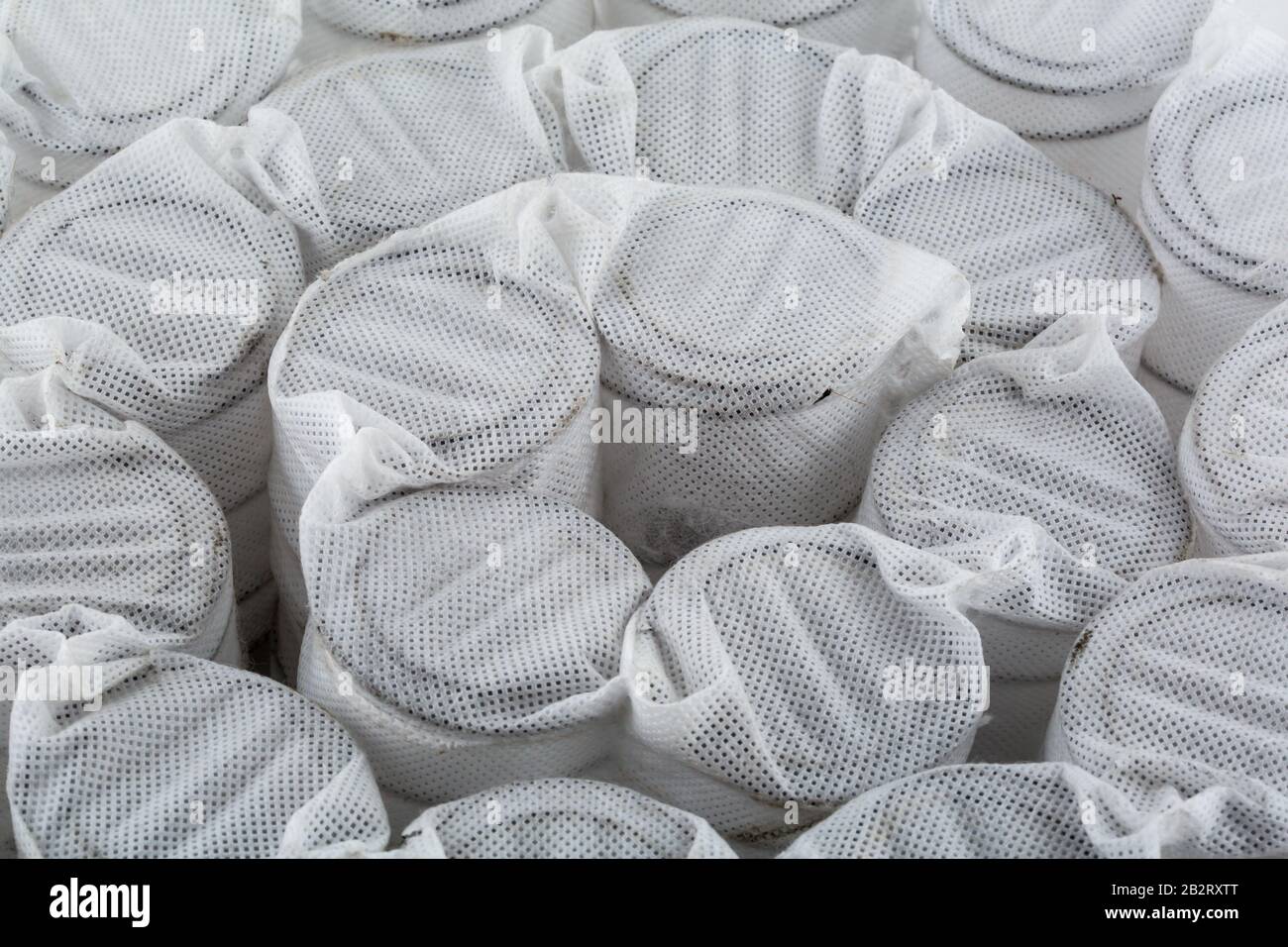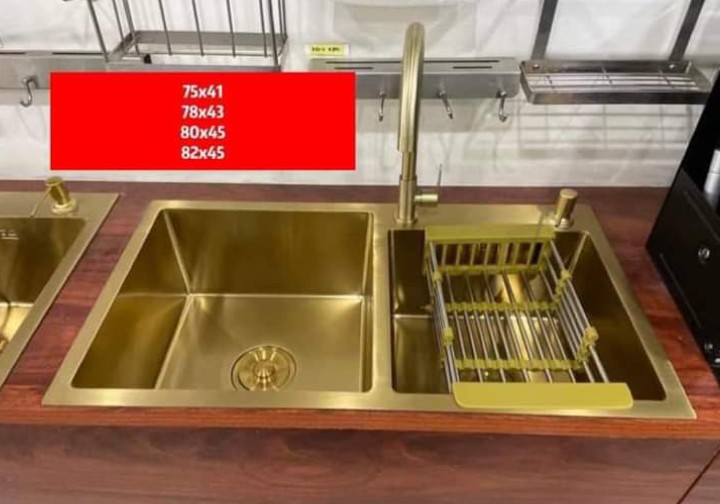How to Unclog a Kitchen Sink with Vinegar and Baking Soda
Dealing with a slow draining kitchen sink can be frustrating and inconvenient. But before you reach for harsh chemicals or call a plumber, try using a natural solution of vinegar and baking soda to unclog your sink. Not only is this method effective, but it's also environmentally friendly and easy on your wallet.
To start, remove any visible debris or food particles from your sink drain. Then, pour about half a cup of baking soda down the drain, followed by half a cup of white vinegar. The combination of these two ingredients will create a chemical reaction that helps to break down any buildup in the pipes.
Let the mixture sit for about 10-15 minutes. During this time, you can boil some water in a separate pot. After the time has passed, pour the boiling water down the drain to flush out any remaining debris. Your sink should now be draining much quicker!
How to Fix a Slow Draining Kitchen Sink
There are a few other methods you can try if the vinegar and baking soda solution doesn't fully unclog your kitchen sink. One option is to use a plunger to create suction and dislodge any stubborn clogs. Another method is to use a plumbing snake, which is a long, flexible tool that can reach deep into your pipes to remove blockages.
If these DIY methods don't work, it may be time to call a professional plumber. They have specialized tools and expertise to effectively unclog your sink and ensure it is properly functioning.
DIY Natural Drain Cleaner for Slow Draining Sinks
If you prefer to use natural alternatives to harsh chemicals, there are a few other DIY methods you can try to clear a slow draining kitchen sink. One option is to mix equal parts of baking soda and salt and pour it down the drain, followed by hot water. The abrasive texture of the salt can help to break down any buildup in the pipes.
Another option is to use a mixture of lemon juice and baking soda. The acidity of the lemon juice can help to dissolve any grease or grime in the pipes, while the baking soda acts as a gentle abrasive to loosen and remove debris.
How to Use Vinegar to Clear a Clogged Drain
Vinegar is a versatile and effective household cleaner that can also be used to clear clogged drains. In addition to using it with baking soda, you can also try pouring a half cup of vinegar down the drain and letting it sit for about 30 minutes before flushing with hot water. This can help to break down any stubborn buildup and unclog your drain.
You can also mix equal parts of vinegar and salt and pour it down the drain, followed by hot water. The salt acts as a natural abrasive, while the vinegar helps to dissolve any debris.
5 Easy Ways to Unclog a Kitchen Sink
Dealing with a slow draining kitchen sink doesn't have to be a difficult and expensive task. Here are 5 easy and natural ways to unclog your sink without harsh chemicals:
1. Use a mixture of baking soda and vinegar.
2. Try using a plunger to create suction.
3. Use a plumbing snake to remove stubborn clogs.
4. Mix baking soda and salt, or lemon juice and baking soda, to create an abrasive cleaner.
5. Pour vinegar down the drain and let it sit before flushing with hot water.
Natural Remedies for a Slow Draining Kitchen Sink
If you prefer to use natural remedies, there are a few other ingredients you can try to clear a slow draining kitchen sink. One option is to use a mixture of borax and vinegar. The borax acts as a natural cleaner and can help to break down any buildup in the pipes. Another option is to use a mixture of salt and baking soda, followed by hot water, to create a natural abrasive and flush out any debris.
How to Clean and Deodorize a Slow Draining Kitchen Sink
Even if your kitchen sink isn't clogged, it may still be draining slowly due to a buildup of food particles and grease. To clean and deodorize your sink, you can use a mixture of baking soda and vinegar followed by hot water. This will not only help to remove any buildup in the pipes, but it will also leave your sink smelling fresh and clean.
Another option is to use lemon and salt to create a natural cleaning paste. This can help to scrub away any tough stains and leave your sink sparkling clean.
Unclogging a Kitchen Sink with Vinegar and Salt
If you have a sink that is constantly clogged due to grease or food particles, you can use a mixture of vinegar and salt on a regular basis to help prevent future clogs. Simply pour the mixture down the drain and let it sit for about 30 minutes before flushing with hot water. This can help to keep your pipes clear and your sink draining smoothly.
Simple Tricks to Fix a Slow Draining Kitchen Sink
Prevention is key when it comes to keeping your kitchen sink from clogging. Here are a few simple tricks you can use to help prevent slow draining sinks:
- Avoid pouring grease down the drain. Instead, dispose of it in a separate container.
- Use a sink strainer to catch food particles and prevent them from going down the drain.
- Regularly clean your sink with a natural cleaner, such as vinegar and baking soda, to prevent buildup.
Using Vinegar and Hot Water to Clear a Slow Draining Kitchen Sink
If your sink is still draining slowly after trying the previous methods, you can try using a combination of vinegar and hot water. Simply pour a cup of vinegar down the drain and let it sit for about 20 minutes. Then, flush with hot water to help break down any stubborn clogs and get your sink draining properly again.
In conclusion, dealing with a slow draining kitchen sink can be frustrating, but it doesn't have to be a difficult or expensive task. By using natural alternatives such as vinegar and baking soda, or simple household items like salt and lemon, you can easily unclog your sink and keep it running smoothly. Remember to also regularly clean and maintain your sink to prevent future clogs. With these tips, you'll have a perfectly functioning kitchen sink in no time!
Common Causes of Slow Draining Kitchen Sinks

1. Clogged Drain
 One of the most common causes of a slow draining kitchen sink is a clogged drain. Over time, food particles, grease, and other debris can build up in your drain and cause blockages. This can lead to water taking longer to drain or even causing backups in your sink. To prevent this, it's important to regularly clean out your drain with a mixture of
vinegar
and
baking soda
. This natural
cleaning
solution can help break down any buildup and keep your drain flowing smoothly.
One of the most common causes of a slow draining kitchen sink is a clogged drain. Over time, food particles, grease, and other debris can build up in your drain and cause blockages. This can lead to water taking longer to drain or even causing backups in your sink. To prevent this, it's important to regularly clean out your drain with a mixture of
vinegar
and
baking soda
. This natural
cleaning
solution can help break down any buildup and keep your drain flowing smoothly.
2. Faulty Pipes
 Another cause of a slow draining kitchen sink can be faulty pipes. Over time, pipes can become corroded, cracked, or even collapsed, which can restrict the flow of water. This can be a serious issue that requires the help of a professional plumber. If you suspect your pipes are the culprit, it's best to have them inspected and repaired as soon as possible to prevent further damage and potential plumbing emergencies.
Another cause of a slow draining kitchen sink can be faulty pipes. Over time, pipes can become corroded, cracked, or even collapsed, which can restrict the flow of water. This can be a serious issue that requires the help of a professional plumber. If you suspect your pipes are the culprit, it's best to have them inspected and repaired as soon as possible to prevent further damage and potential plumbing emergencies.
3. Improper Garbage Disposal Usage
 If your kitchen sink has a garbage disposal, it's important to use it properly to avoid causing clogs. Many people make the mistake of putting large or hard food items down the disposal, which can cause it to become jammed and lead to slow draining. To prevent this, only put small amounts of food scraps down the disposal at a time and avoid putting in items like bones or fibrous vegetables.
If your kitchen sink has a garbage disposal, it's important to use it properly to avoid causing clogs. Many people make the mistake of putting large or hard food items down the disposal, which can cause it to become jammed and lead to slow draining. To prevent this, only put small amounts of food scraps down the disposal at a time and avoid putting in items like bones or fibrous vegetables.
How to Fix a Slow Draining Kitchen Sink with Vinegar
 In addition to regular drain cleaning, using
vinegar
can also help fix a slow draining kitchen sink. This simple household ingredient is an effective and natural way to break down buildup and keep your drain flowing freely. To use vinegar to unclog your sink, follow these steps:
In addition to regular drain cleaning, using
vinegar
can also help fix a slow draining kitchen sink. This simple household ingredient is an effective and natural way to break down buildup and keep your drain flowing freely. To use vinegar to unclog your sink, follow these steps:
Step 1: Boil Water
 Start by boiling a pot of water. This will help loosen any debris in your drain and make it easier for the vinegar to work its magic.
Start by boiling a pot of water. This will help loosen any debris in your drain and make it easier for the vinegar to work its magic.
Step 2: Pour Vinegar Down the Drain
 Next, pour a cup of
white vinegar
down the drain. The acidity of the vinegar will help break down any buildup and clear your drain.
Next, pour a cup of
white vinegar
down the drain. The acidity of the vinegar will help break down any buildup and clear your drain.
Step 3: Add Hot Water
 After pouring in the vinegar, immediately pour the hot water down the drain. This will help flush out any loosened debris and clear the clog.
After pouring in the vinegar, immediately pour the hot water down the drain. This will help flush out any loosened debris and clear the clog.
Step 4: Repeat if Necessary
 If your sink is still draining slowly, you may need to repeat this process a few times to completely clear the clog. If the problem persists, it's best to call a professional plumber for assistance.
In conclusion, a slow draining kitchen sink can be a frustrating problem to deal with. However, by understanding the common causes and using natural solutions like
vinegar
, you can keep your drain flowing smoothly and avoid potential plumbing disasters. If the issue persists, don't hesitate to seek professional help to prevent further damage and ensure your kitchen sink stays in top working condition.
If your sink is still draining slowly, you may need to repeat this process a few times to completely clear the clog. If the problem persists, it's best to call a professional plumber for assistance.
In conclusion, a slow draining kitchen sink can be a frustrating problem to deal with. However, by understanding the common causes and using natural solutions like
vinegar
, you can keep your drain flowing smoothly and avoid potential plumbing disasters. If the issue persists, don't hesitate to seek professional help to prevent further damage and ensure your kitchen sink stays in top working condition.


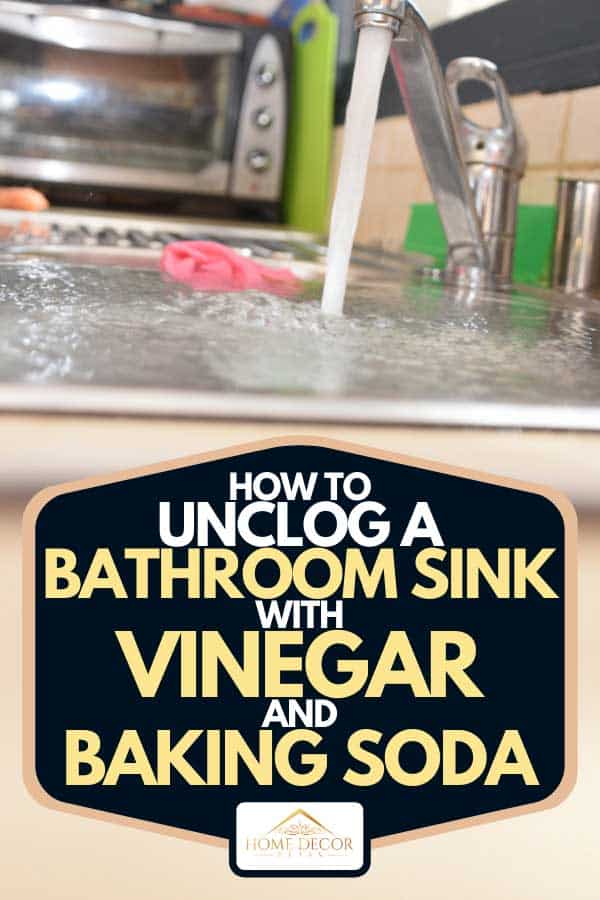

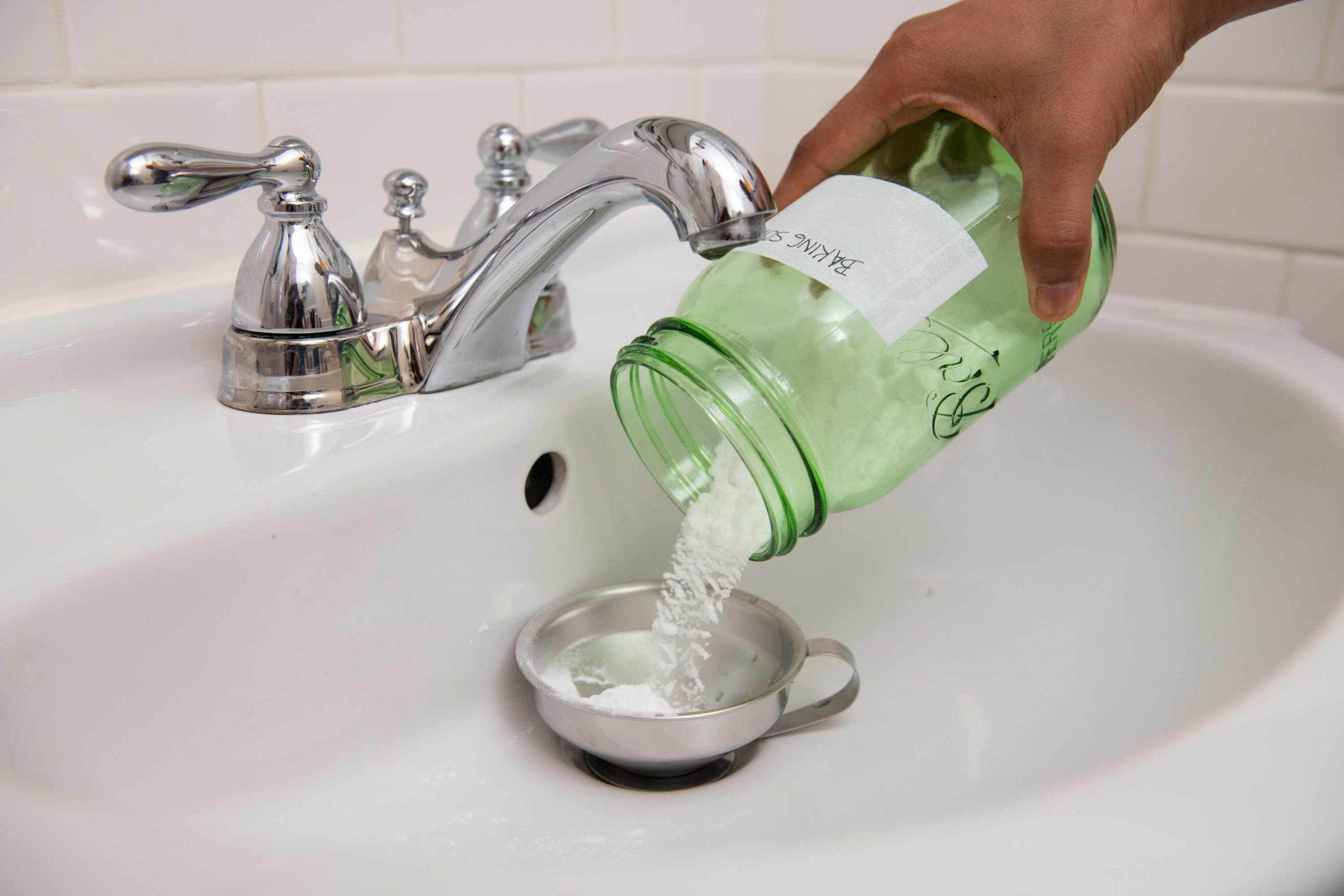

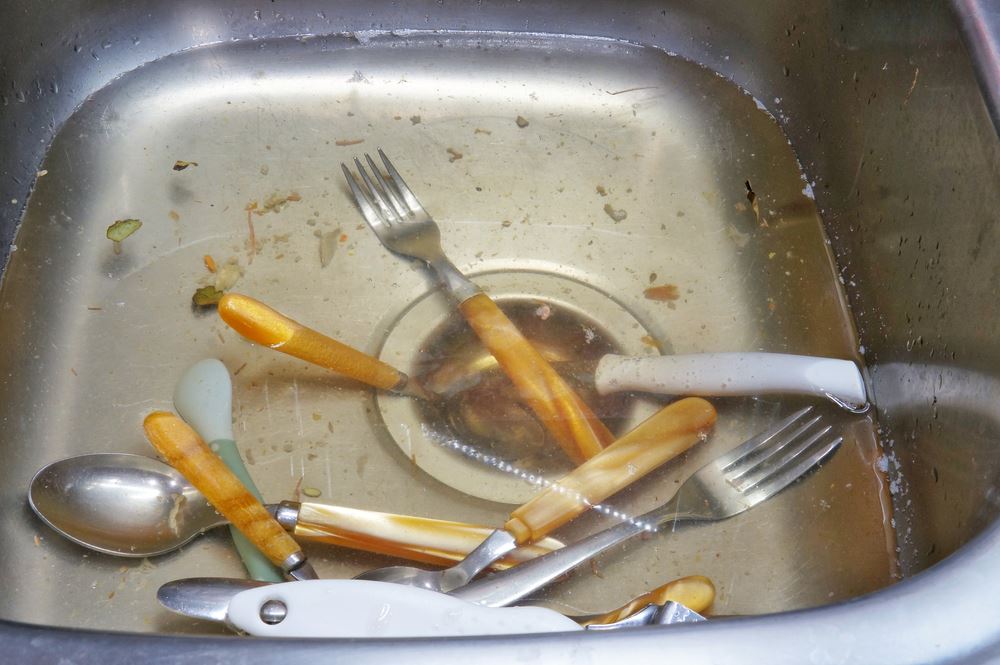



:max_bytes(150000):strip_icc()/freshen-and-unclog-drain-with-baking-soda-1900466-22-bbf940b70afa4d5abef0c54da23b1d3f.jpg)
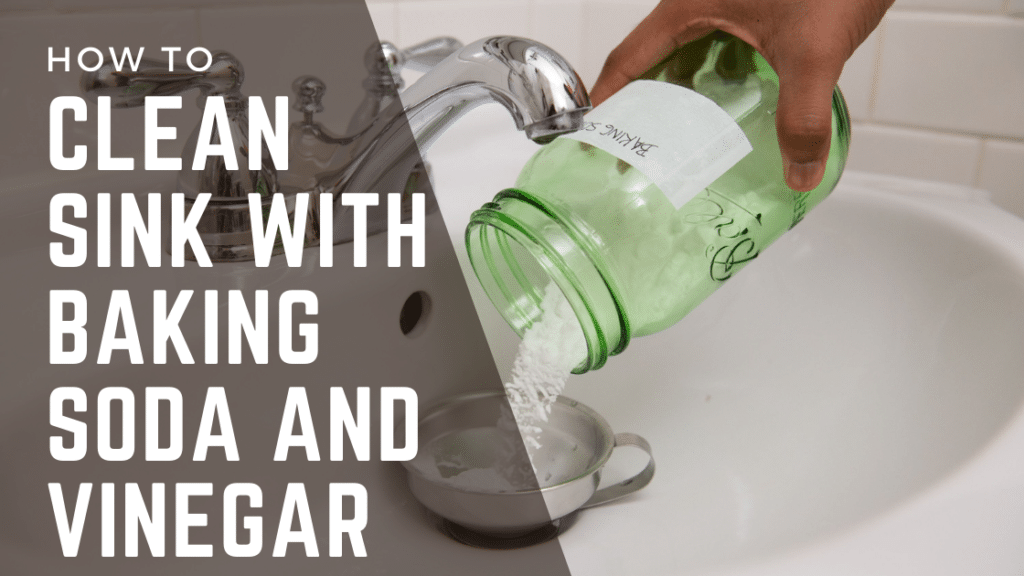









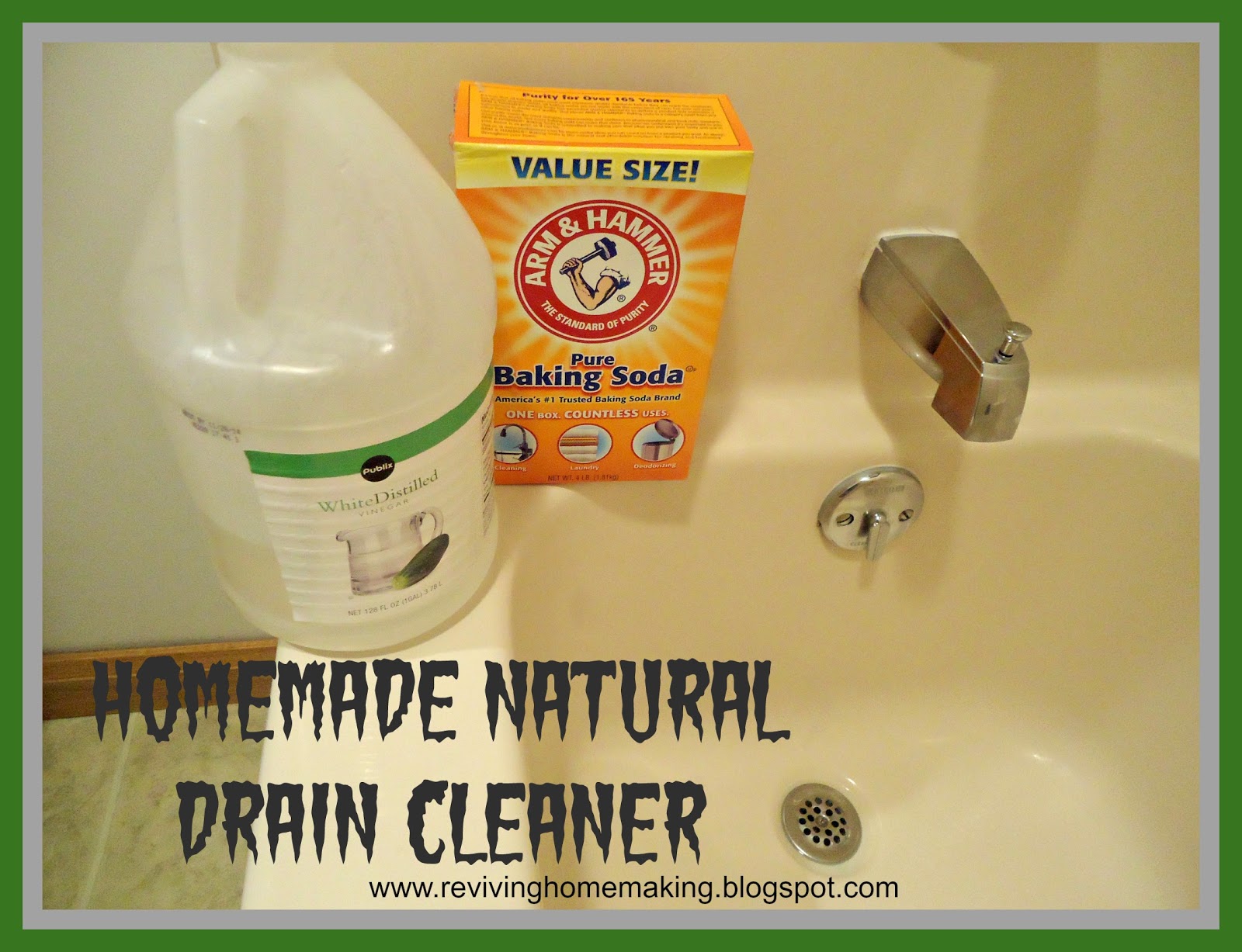
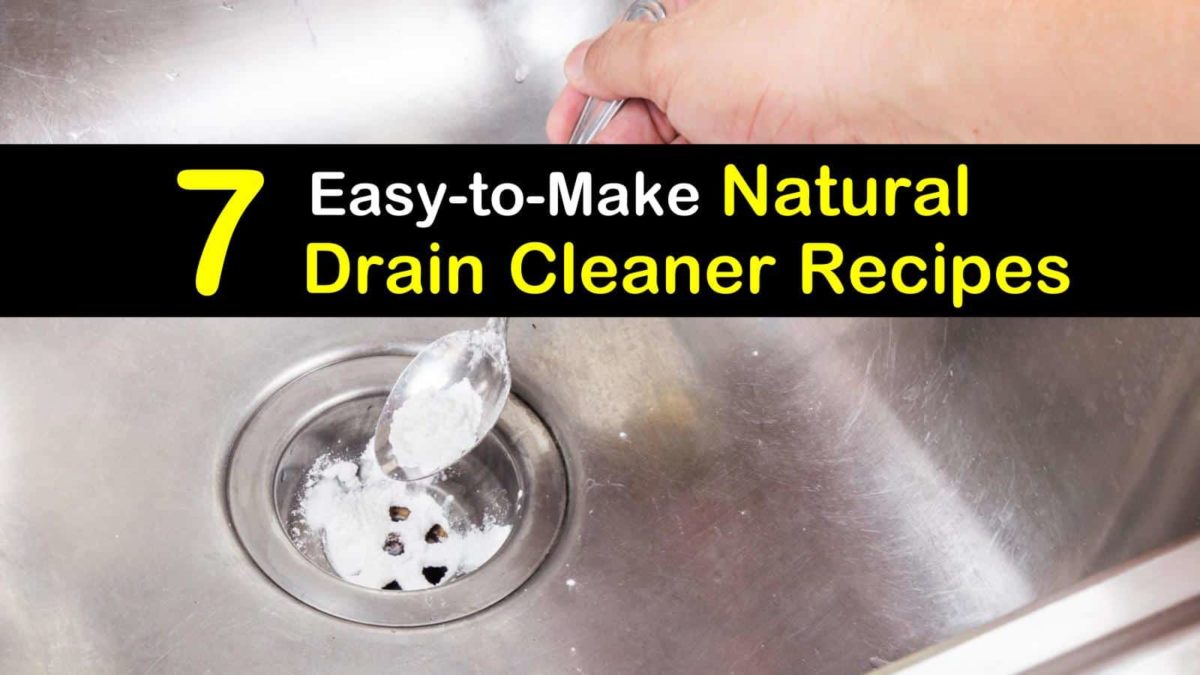

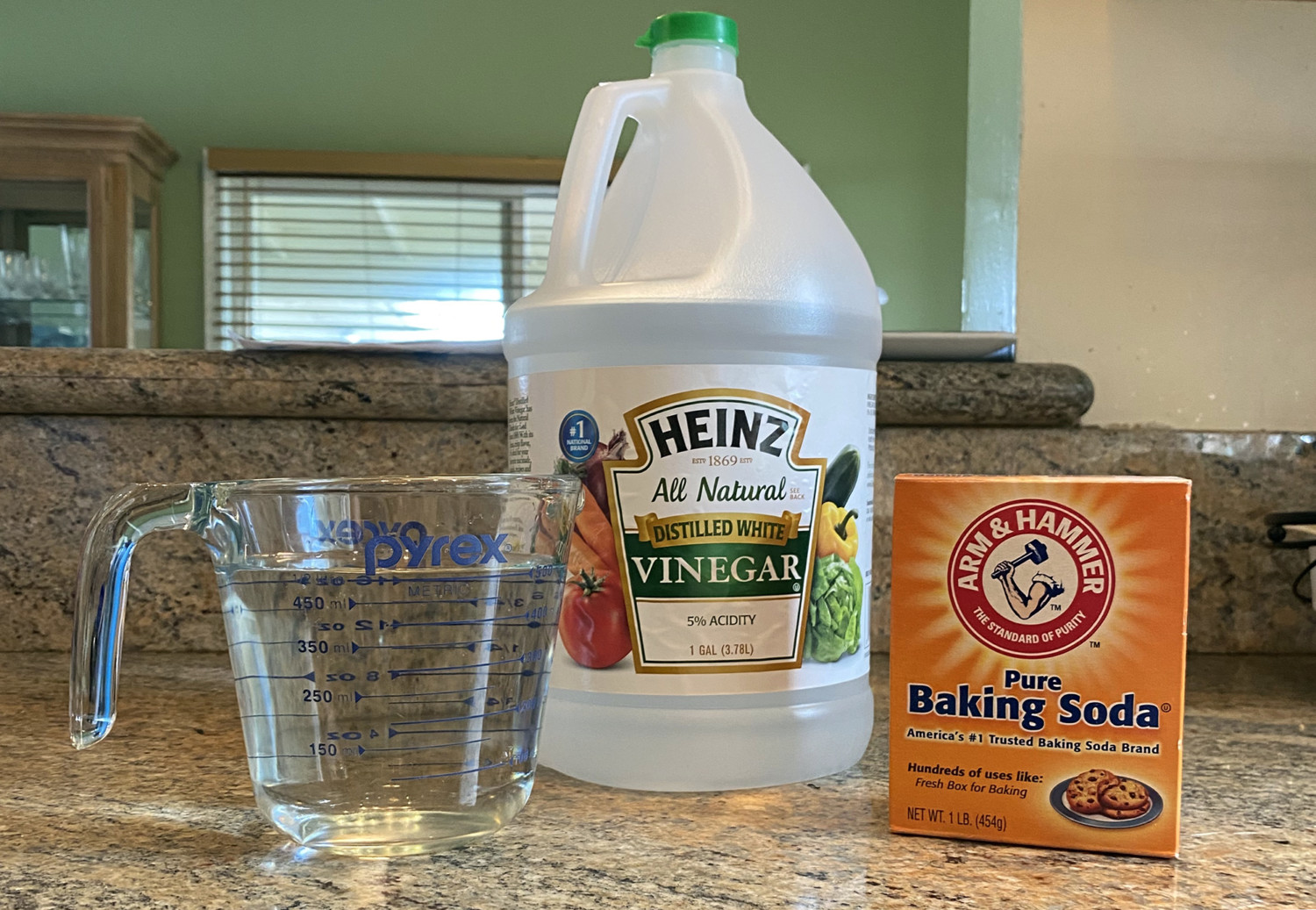




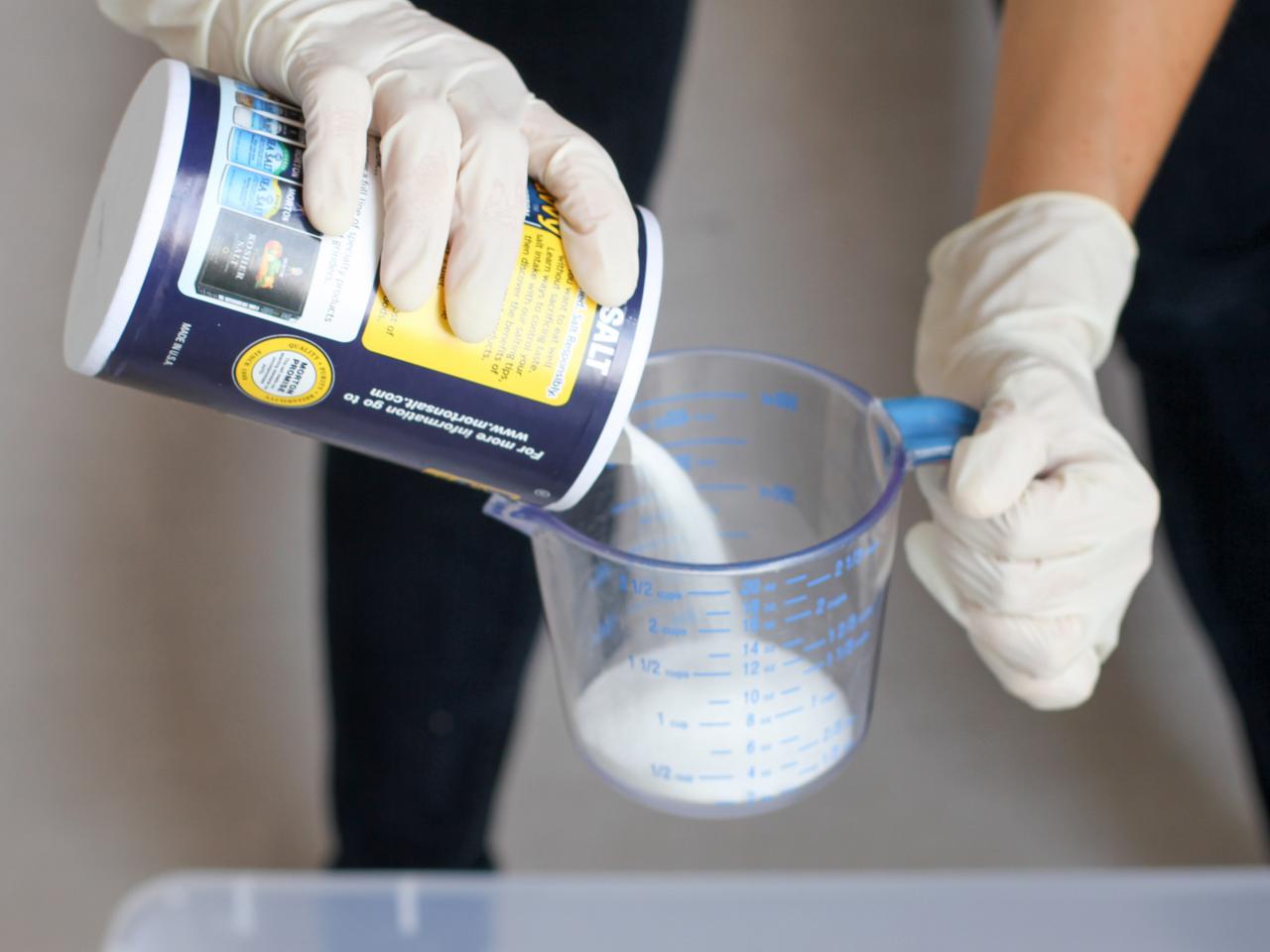



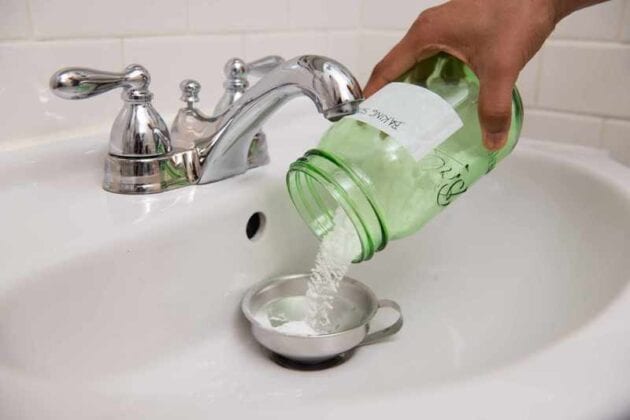
:max_bytes(150000):strip_icc()/freshen-and-unclog-drain-with-baking-soda-1900466-18-1a5b5da01939471ca8f8823865bd1ce8.jpg)
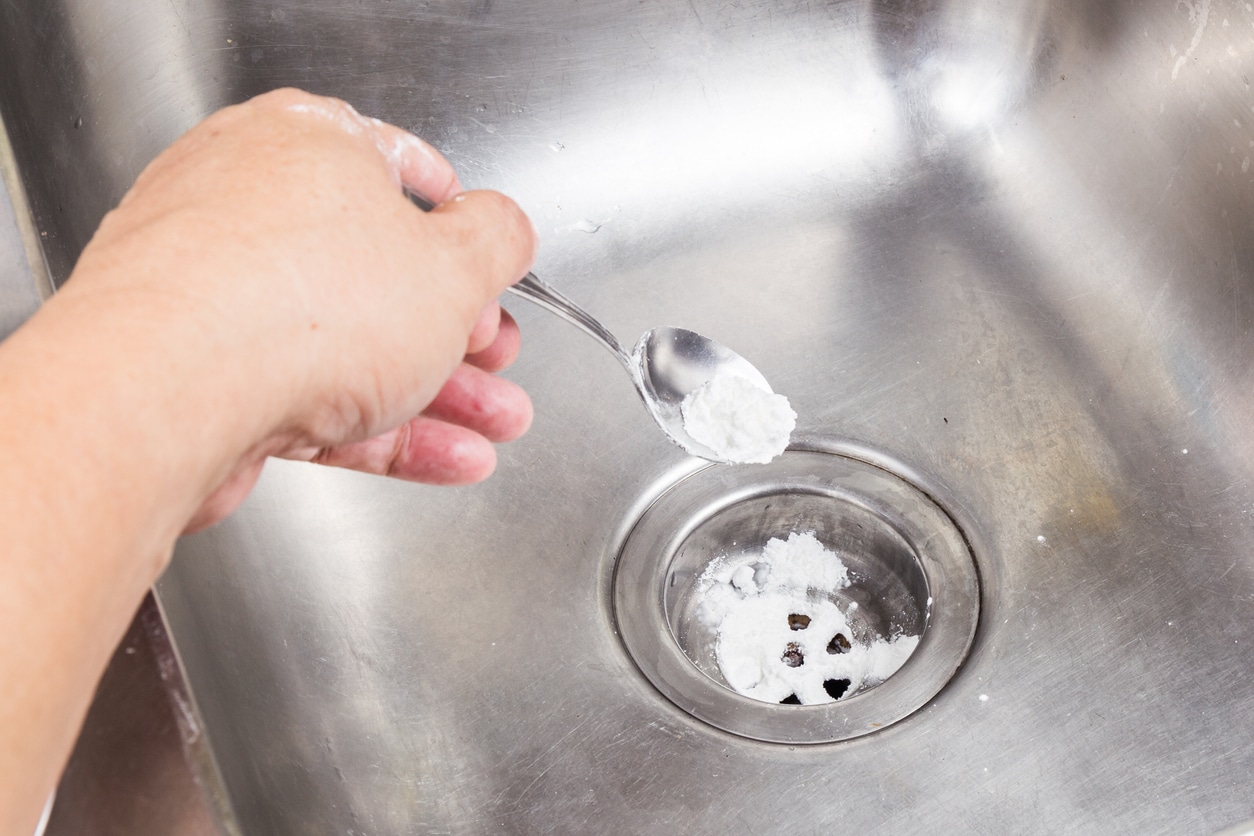

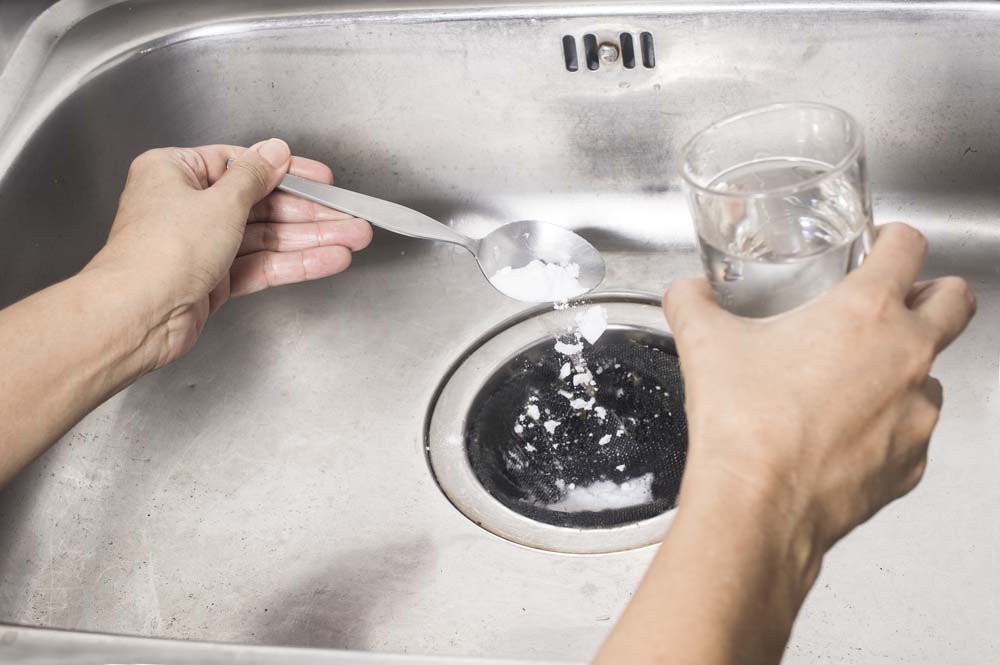









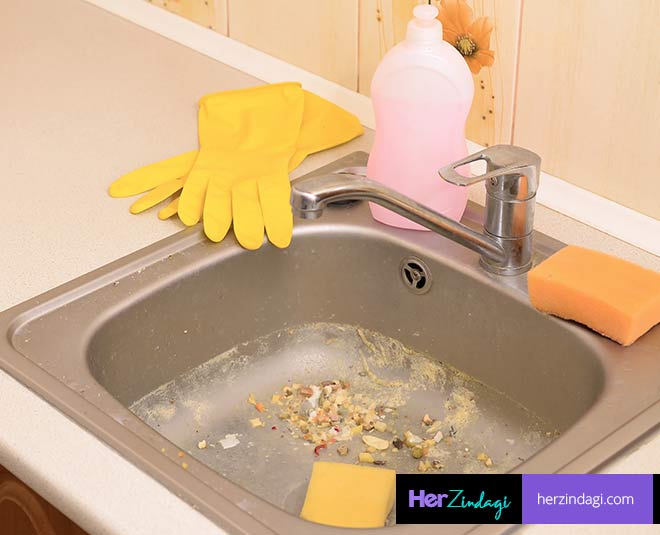

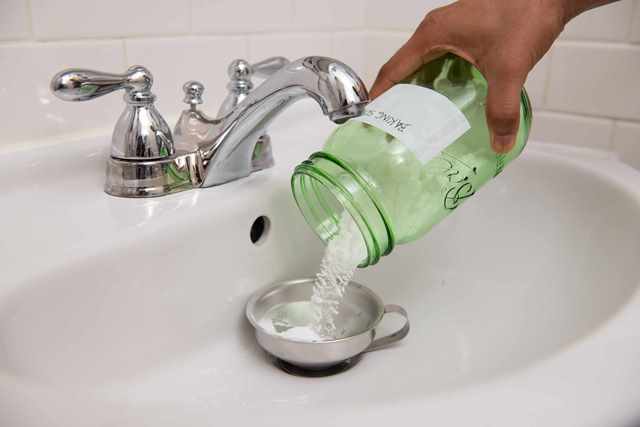




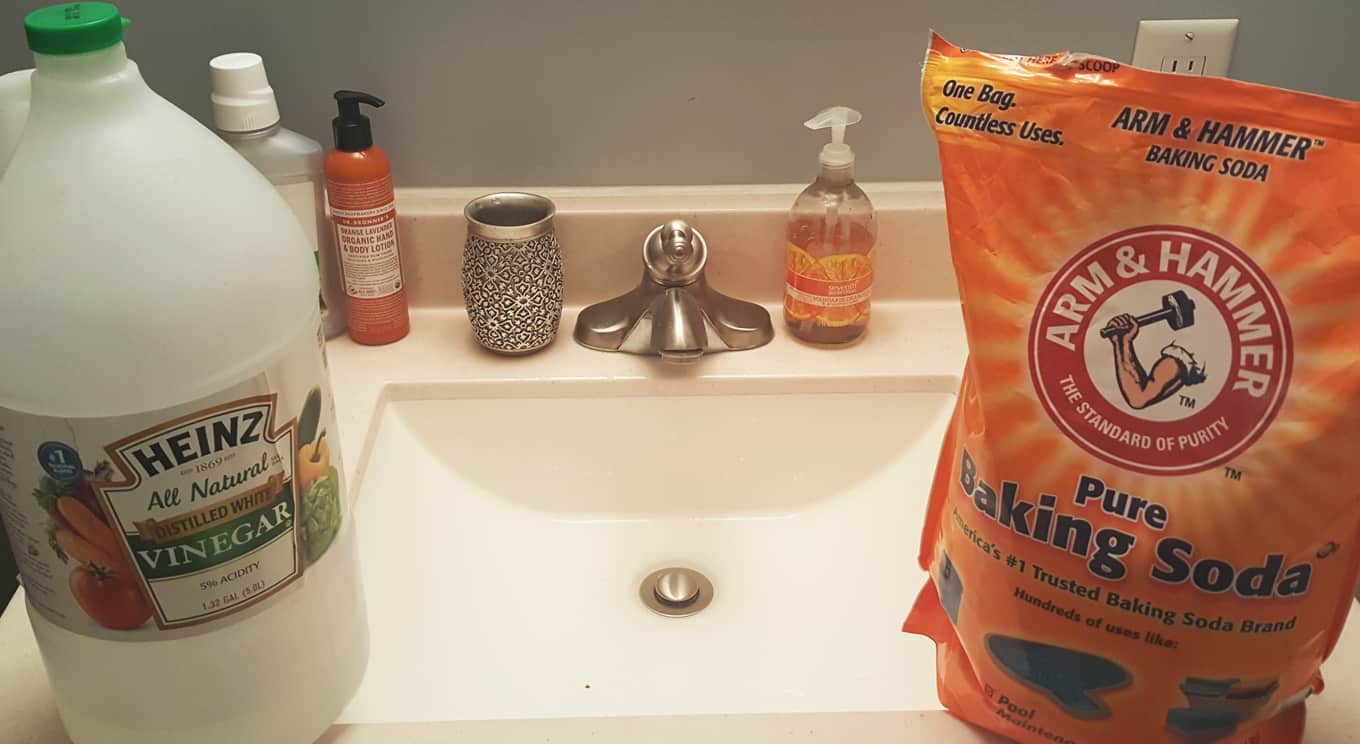







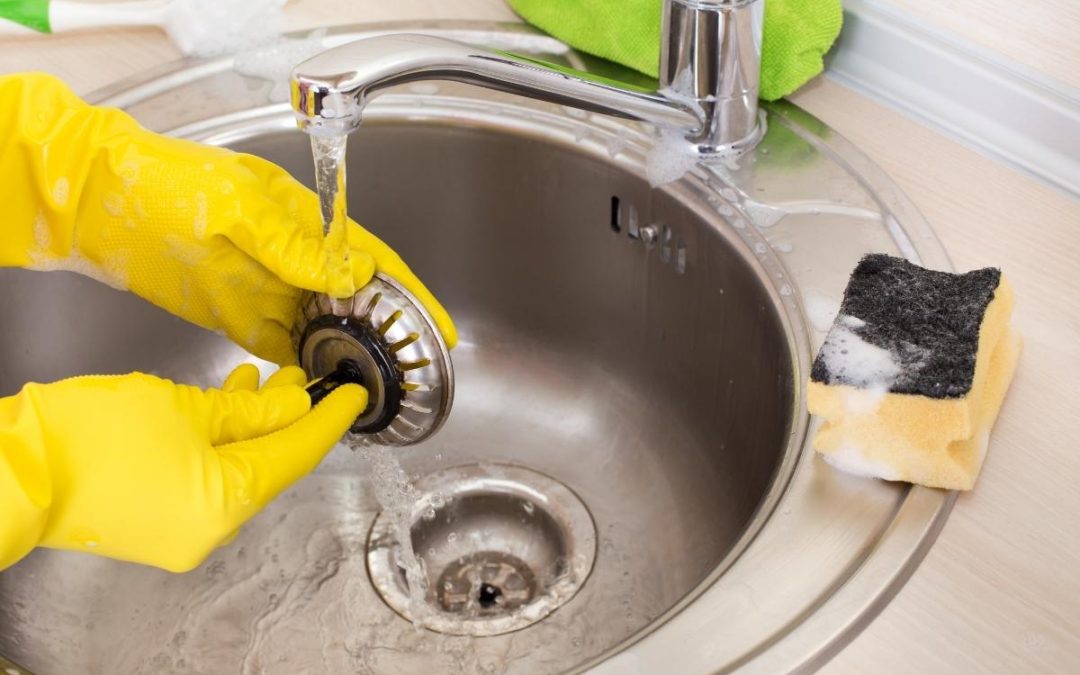



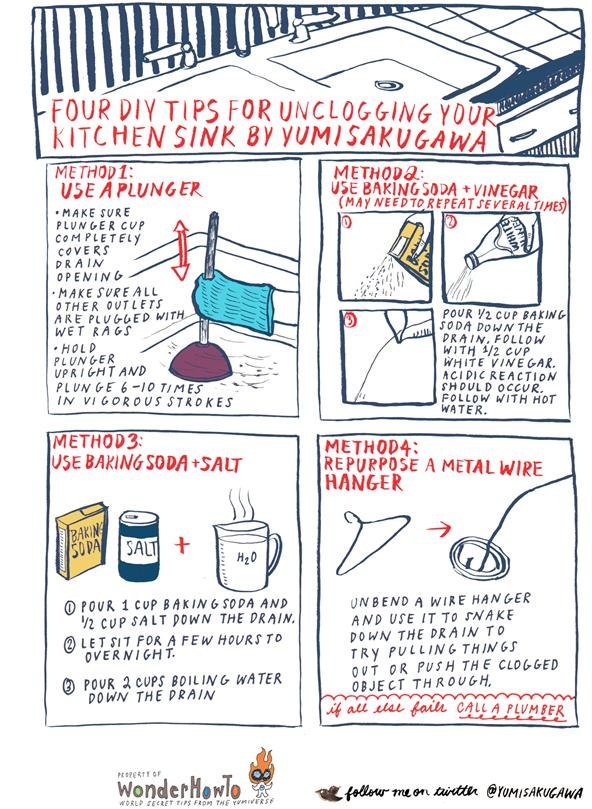














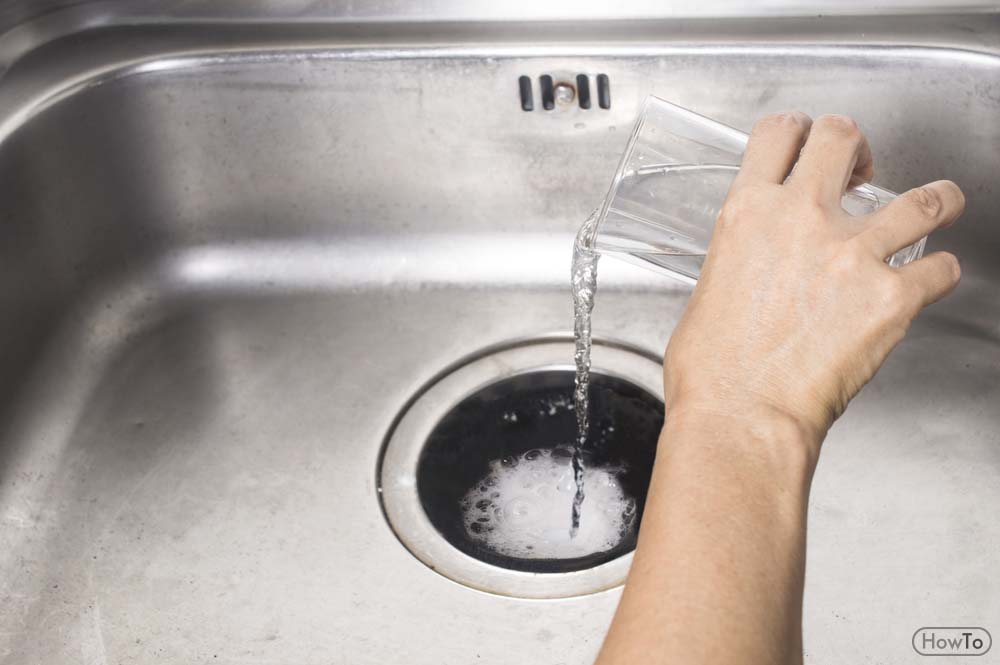

:max_bytes(150000):strip_icc()/freshen-and-unclog-drain-with-baking-soda-1900466-17-20179d73b7a2455797ebc6a5f5bf7479.jpg)
